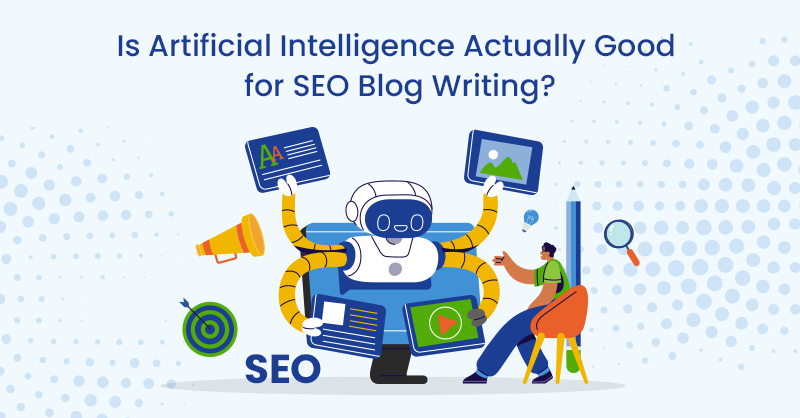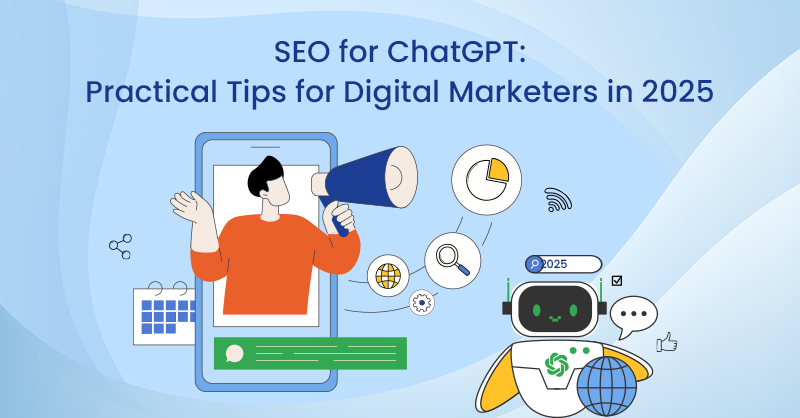Thanks to the rise of software, like ChatGPT, the world is starting to stand up and take notice of artificial intelligence. There is still plenty that AI can’t do, but when it comes to creating content, the progress has been quite significant. We’ve heard stories of educational institutions banning its use, and there are even tools now to check if something has been written by AI. So, today we’re asking whether AI is really as good as people think it is for content creation.
The Rise of AI-generated Content
Like many things in the digital world, AI software started getting noticed for its amusing content-creation capabilities. Not long ago, we started seeing videos, for example, where someone has used AI software to create a song in the style of a certain band. That’s pretty impressive in itself, and there were many other popularised examples.
Following these tidbits of AI popular culture, we saw the release of ChatGPT, a program that can receive commands and provide detailed responses. Its uses are quite varied, from researching topics to generating YouTube scripts and blog content.
However, behind the scenes, we also saw the rise of tools like Jasper, an AI writing tool specifically designed for producing written content. There are now numerous similar programs out there, all with varying costs and quality. We’ll discuss specifically the quality a bit later on.
What do people really think of AI?
Most people have two immediate thoughts when it comes to AI. You’re either in the school of people who believe it will ruin livelihoods and take our jobs. The other group of people look at the potential of AI and machine learning, especially when it comes to how it can make money for them.
We won’t delve too much into the first school of thought. It’s certainly likely that AI will replace some human jobs, but it’s also possible it will create many more. It’s a bit like people who work in the fossil fuel industry. They can be worried that their industry is dying, but the reality is that the fossil-fuel industry will be replaced by the renewable energy industry, likely creating just as many jobs for displaced workers.
But the second school of thought is an interesting one–using AI to make money. Perhaps, the two ideas tie in together. If one group wants to make money from AI, it may lead to some people losing employment. Still, there is a lot to play out in the world of AI before the major impacts are felt on a grand scale.

Source: Cottonbro Studio
Are AI content-generating tools any good?
Like many tools, AI content generators are only as good as the human controlling them. Put it this way; you can’t just ask an AI tool to create a 1,000-word blog on a specific topic, using specific keywords and ensuring it ranks well on Google. The technology simply isn’t that advanced, meaning there’s still a lot of manual massaging to do.
We trialled a few of these tools, and the results were mixed. Without going into too much detail, as we’re not here to advertise these tools, Copy.ai seemed to be the most reliable for blog copy. However, the results were well below the standard you’d expect from professional SEO copywriting services. Let’s look at some of the areas these tools fall down.
Lots of Input Required
Most AI writing tools generate content outlines for you, but rarely are they accurate. Nor do they flow as an article should, and often the topic suggests aren’t what you’re really looking for. So, if you use an AI tool, be prepared to do the content outline yourself or edit the suggestions made by the software.
The same applies when you start breaking each blog section into talking points. To increase the quality of content, you need to spend some time checking and editing the dot points to be discussed in each section. If you don’t take the time to do this, you will end up with very poor, probably irrelevant content.
Varied Writing Style
Once your blog post is produced using all of your inputs, we found that the formatting was different from section to section. Some will have dot points but are poorly structured. Some sections are huge blocks of text. Everything looks and reads a little differently, making it very obvious that a human hasn’t written the content.
Incorrect Content
It’s not unusual for these AI writing tools to throw out some statistics or facts. This sounds amazing, but the issue is you’ll need to spend a lot of time fact-checking. While not business related, we tested one tool, asking it to give us a detailed history of a very popular album by a very popular band. The “facts” produced by the AI tool were absurd, in one instance claiming it was the first album to not feature two of the key members. For the record, those two members have been with the band for 30 years and have been key parts of the group’s entire history.
So, again, these tools are great but don’t rely on them to produce accurate, factual content every time. Or, at any time–all facts should be checked.
No Word Counts
It’s not an enormous sticking point, but most of these tools don’t allow you to control the word count. So, if you specifically want to produce something that’s 1500 words long, the only way to ensure you get a lot of content is to include a lot of topic headers.
Poor Readability
This aspect is certainly improving, and today’s AI writing tools are better than early versions that produced content with very poor readability. Even so, the varied writing style and the fact that AI pulls information from various sources and re-writes it means you end up with some great content and some terrible content in the same article. So, if you want the article to read well, make sense, and sound like you, you’ll need to spend time tweaking the content.
Risk of Plagiarism
The fact is, we don’t know exactly how these AI writing tools operate behind the scenes. You could assume that it uses existing content on the internet and creates something fresh and new using that data. The issue is that there is a lot of dubious content on the internet, meaning you end up with incorrect statements. Perhaps, more importantly, especially from an SEO point of view, is that you could potentially be plagiarising someone else’s work without knowing it.
There are plagiarism checkers out there, but again, it’s hard to determine how reliable they are. Typically, Google considers something to be plagiarised if it contains more than 10% plagiarised content. This brings us to our biggest concern regarding AI writing tools.

Source: Pixabay
Google, SEO and AI
If there are AI writing tools and plagiarism checkers in existence, one could rightly assume that one of the biggest tech companies in the world (Google), would have some pretty high-level tools of its own. If you think about it, the Googlebots that crawl websites and formulate where to rank webpages are a form of AI.
For SEO purposes, Google often changes its focus and also doesn’t let the general public know exactly how its algorithm works. So, let’s say the internet gets flooded with AI-generated content. Google’s systems are always advancing, and in order to separate quality, unique, valuable content from the AI-generated blogs that have been made purely for SEO purposes, its own AI systems will naturally be advancing.
Remember when all you had to do to rank well was stuff pages with keywords? Google lost interest in that quickly, and its aim has always been to provide users with the most useful, valuable information. To maintain this level of quality, Google needs to find better ways to separate dodgy content from valuable content.
We already have software available to check if something is AI-generated. So, how long will it be before Google starts penalizing websites that overuse AI content? It already hands out SEO penalties to old websites that are stuffed with keywords, so you have to imagine Google will be ahead of the game when it comes to AI content too.
The Final Say
In the right hands, AI copywriting tools can be a great thing. But they’re not a quick fix. You’ll still need to spend plenty of time on your inputs and then lots of time editing the outputted content. If you want quality content, that is. And you should, because you want to future-proof your website.
We found that using AI writing tools could potentially make life a little easier, but the amount of editing (essentially rewriting entirely) required to keep everything in the same voice just wasn’t worth it. In fact, a skilled writer could probably just produce the article themselves in the time spent messaging the AI tool and tidying up the results.
It’s all speculation at this stage, but as AI grows, so does Google’s capability to detect dodgy SEO practices. If Google deems AI content to be a dodgy SEO practice, just as it did with keyword stuffing and click farms, then we’d rather have quality, unique and valuable content on our website.
At TechWyse Internet Marketing, we use a wide array of advanced digital tools and software to optimize your digital marketing strategy. We also provide clients with a complete range of services, including strategy and consulting, SEO, PPC, web design, and so much more. To get started, call (416)-410-7090 or contact us here.





